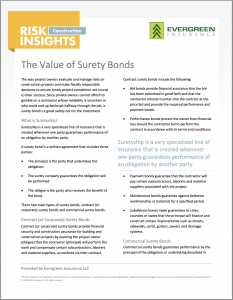April is Financial Literacy Month. Finances can be very stressful. Learning more about financial matters can help financial anxiety. Click on the image to read our financial literacy tips. #financialliteracymonth
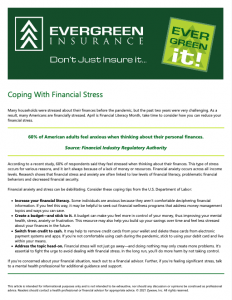
As a business owner, there is no shortage of things that you need to manage daily. It’s nice to have the peace of mind that you and your business are covered if an insurance claim is brought against you. A business owner’s policy (BOP) is a good option for small and midsized businesses. Click on the image to learn more and contact us to help protect you and your business.
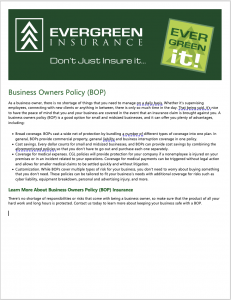
Is your business considering a new building? Have another commercial project in mind? As the construction season kicks into high gear, watch our Surety Bond for Contractors video on YouTube to make sure you are covered! Click here: https://youtu.be/o44uy_Sgk9A Then contact our Surety department to discuss your situation.
Business leaders make decisions each day on a range of issues including hiring, firing, compensation, promotions, and the work environment. Every one of these decisions impacts your employees and, depending on the outcome, could result in a claim against your company or leadership. Click the image to read or download more about the benefits of Employment Practices Liability Insurance and contact us to discuss your risk.
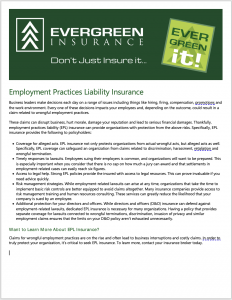
Your livelihood is dependent on the survival of your business, so it is imperative that you protect it against potential threats. A fire could destroy your business’s warehouse and the contents inside, or a burst frozen pipe could damage important documents and valuable papers.
Click the image to read or download our overview of the basics of property insurance.
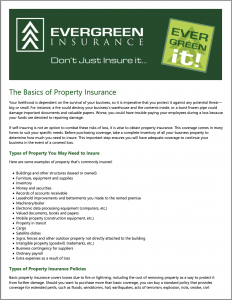
Owners and builders can’t afford to gamble on a contractor whose reliability is uncertain or who could end up bankrupt halfway through a job… that’s why a surety bond is a great safety net for a building project. Click the image to download our surety bond overview sheet.
Then connect with Jordan Rodgers in our surety department to discuss your situation.
